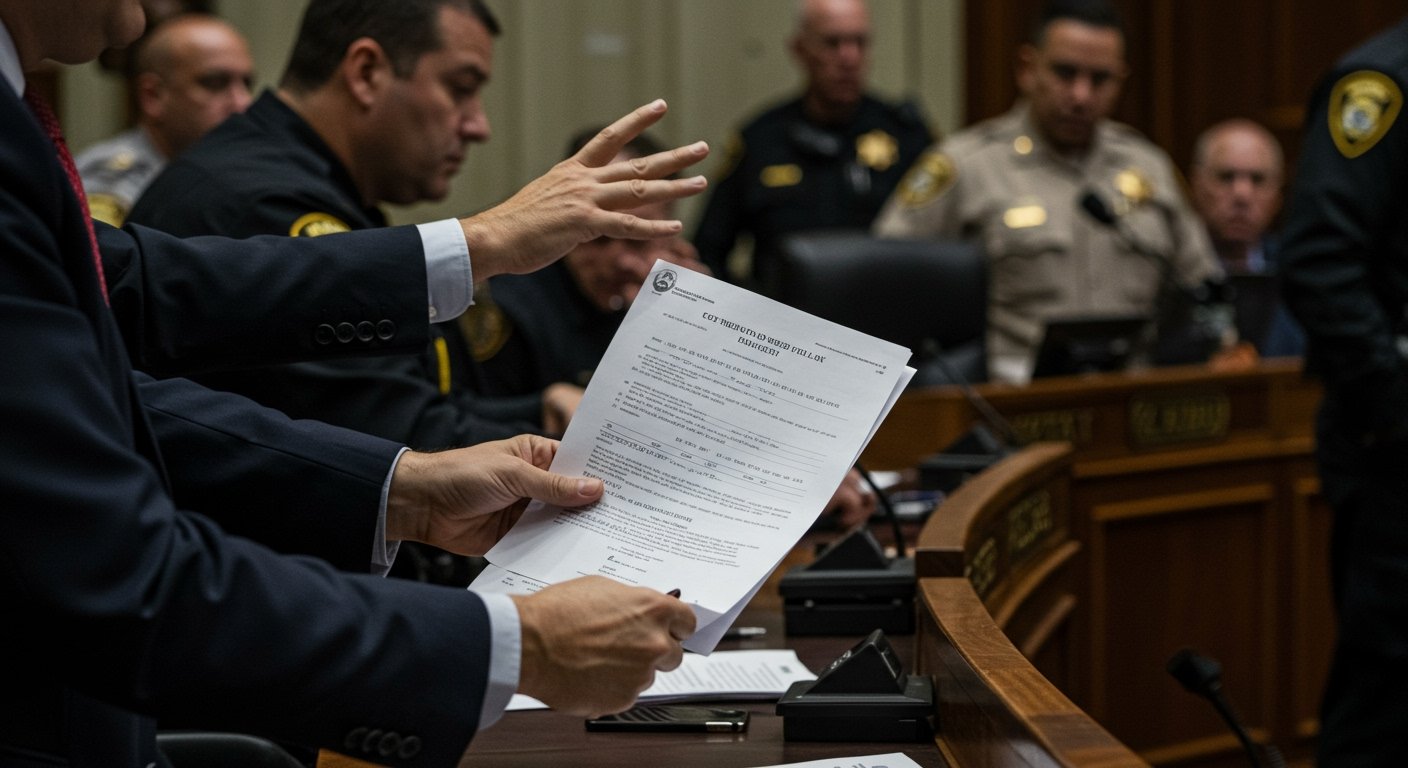Miami Commissioners Vote to Adopt 287(g) Program Amidst Heated Debate
Miami, Florida – The Miami City Commission has voted to enter into a controversial agreement with U.S. Immigration and Customs Enforcement (ICE), a decision that grants local police officers authority to act in federal immigration enforcement roles. The measure, known as a 287(g) agreement, was approved by a 3-2 vote following a contentious session that featured emotional public testimony and sharp criticism from opponents.
The vote saw Commissioners Joe Carollo, Miguel Gabela, and Ralph Rosado cast their ballots in favor of the agreement. Commissioners Christine King and Damian Pardo voted against the measure. The decision marks a significant shift in the city’s approach to immigration enforcement and has ignited debate regarding its potential impact on community relations and public safety.
Understanding the 287(g) Agreement and its Ramifications
The 287(g) program is a federal initiative that deputizes state and local law enforcement officers to perform certain functions of federal immigration agents. Proponents argue it enhances public safety by targeting individuals in the country illegally who have committed crimes. However, critics argue, and opponents stated during the commission meeting, that it blurs the lines between local policing and federal immigration duties, potentially leading to unintended consequences.
Under the terms of the agreement, routine interactions between Miami residents and police officers, such as traffic stops, could potentially become triggers for immigration scrutiny and deportation proceedings. This aspect of the program has been a central point of concern for community advocates and immigrant residents.
Widespread Opposition and Community Fears Underscored
The commission’s vote was met with considerable opposition from members of the public and advocacy groups. During the meeting, emotional public comments highlighted fears that the agreement would foster distrust between immigrant communities and local law enforcement. Opponents argued that residents might become hesitant to report crimes or cooperate with police investigations out of fear that such interactions could lead to immigration consequences for themselves or their families.
This concern is particularly salient in Miami, where immigrants constitute nearly 60% of the city’s population. Critics contended that alienating such a large segment of the community could undermine overall public safety efforts and erode the fabric of the city.
Among the prominent voices against the agreement was Miami-Dade County Commissioner Marleine Bastien. Commissioner Bastien was cited among advocates who criticized the commissioners who voted in favor of the 287(g) agreement and publicly called on Miami Mayor Francis Suarez to veto the measure, urging him to block its implementation.
State Pressure and Official Justifications for the Vote
The backdrop to the Miami City Commission’s decision includes significant pressure from state-level officials in Florida. According to reports from the meeting, Florida Attorney General James Uthmeier and Governor Ron DeSantis have been actively encouraging cities and counties across the state to join the 287(g) program or adopt similar measures aimed at bolstering immigration enforcement at the local level.
Miami Police Chief Manuel Morales also spoke regarding the decision, citing fear of repercussions if the agreement was not entered into, suggesting external pressures played a role in the administration’s recommendation or the commissioners’ ultimate decision.
Supporters of the agreement on the commission emphasized a need to align with state directives and address concerns related to immigration enforcement, though these points were overshadowed by the debate over the potential local impact.
Conclusion
The approval of the 287(g) agreement in Miami represents a significant policy shift with potentially profound implications for its large immigrant population. While proponents point to enhanced enforcement capabilities, critics warn of damaged community relations and increased fear among residents. The decision, made amidst public outcry and state pressure, is likely to remain a focal point of discussion and activism in the city moving forward.





